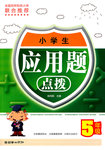题目内容
My favorite English teacher could draw humor out of the driest material. It wasn’t forced on us either. He took Samuel Johnson’s dictionary, Addison’s essays, and many other literary wonders from the eighteenth century and made them hilarious, even at eight o’clock in the morning. The thing that amazed me most was that the first time I read these works on my own some of them seemed dead, but the second time, after his explanation, I couldn’t believe that I hadn’t seen the humor. The stories and poems and plays were suddenly filled with allusions(典故) and irony andhilarious moments. I learned more from him than from any other teacher.
My least favorite English teacher also made people laugh. Some students found him to be wonderfully funny. Many others did not. He assigned journals over a six week period, to be written in every day. At the end of the six weeks I had a notebook full of bits and pieces about my ideas, short stories, reactions to what we had read, and so on. Our teacher announced that we would be grading each other’s journals. Mine was passed to Joe, that class clown, who always behaved in a funny or silly way. He saw it fit to make joke of and said, “This writing isn’t fit to line the bottom of a birdcage.” Our teacher laughed at that funny remark. It hurt me so much that the anger from it has driven my writing and teaching ever since.
So what makes the difference? Humor is one of the most powerful tools teachers or writers have. It can build up students and classes and make them excited about literature and writing, or it can tear them apart. It is true that humor is either productive or counter-productive and self-defeating.
1.The passage mainly discusses _____.
A. teaching B. literature
C. humor D. knowledge
2.The underlined word “hilarious” in Paragraph 1 probably means _____.
A. funny B. tiring
C. inspiring D. brilliant
3.With his favorite English teacher, the writer found it most amazing that _____.
A. his teacher was very learned
B. his teacher was very humorous
C. the works by Johnson and Addison were very humorous
D. few were able to find humor in works by Johnson and others
4.The English teacher the writer disliked most _____.
A. was not able to make students laugh
B. hurt his students’ feelings
C. didn’t let his students do the grading
D. had no sense of humor
1.C
2.A
3.C
4.B
【解析】
1.C 主旨题,本文讲述了两位老师如何是自己的课堂幽默
2.A 猜词题 第一段多次出现其近义词,如:humor amaze等,其次是根据句意
3.C 细节题 根据The thing that amazed me most was that the first time I read these works on my own some of them seemed dead, but the second time, after his explanation, I couldn’t believe that I hadn’t seen the humor.这句话,在老师讲解后,发现这些著作中有很多幽默之处
4.B 细节题 根据倒数第二段最后一句It hurt me so much that the anger from it has driven my writing and teaching ever since.可知作者很受伤

 精英口算卡系列答案
精英口算卡系列答案 应用题点拨系列答案
应用题点拨系列答案
